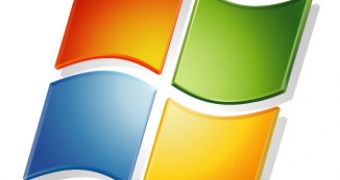Windows Vista Service Pack 2 is the absolute apex in security when it comes down to operating systems, Kevin Turner, chief operating officer for Microsoft, has indicated at the Midmarket CIO Summit earlier this week. Turner has had no problems applauding Vista SP2's superiority over rivals open source Linux and Apple's Mac OS X Leopard, although he has failed to offer any details related to the OS security-measuring content besides his perspective. At the same time, the Redmond company's COO has indicated that Windows 7, the software giant's next iteration of Windows will also be more secure than Linux and Leopard.
“Vista today, post-Service Pack 2, which is now in the marketplace, is the safest, most reliable OS we've ever built. It's also the most secure OS on the planet, including Linux and open source and Apple Leopard,” Turner states. “It's the safest and most secure OS on the planet today. Everything that we've learned in Vista will be leveraged in Windows 7.” Microsoft's COO underlines that Vista's laurels were earned with a consistent effort. “When you look at Vista, you know what? The toughness, the tough launch that we had with the release of Vista was very brutal. The first 18 to 24 months in market was tough. Why was it tough? Because we locked that product down to fix a lot of the security problems.”
The Chief Operating Officer has managed to produce a small slip-up when he has indicated that SP2 for Vista is already available. It is not. Only the Release Candidate of Vista SP2 is, but not the RTM version. Microsoft has, as of yet, failed to disclose the RTM and GA deadlines for Vista SP2. Moving on, Turner has emphasized that Microsoft has suffered greatly by boosting the security of Windows Vista.
Various evolutionary steps taken with the successor of Windows XP, while working to enhance user protection, have been detrimental to software compatibility and hardware/driver support. Turner has reminded the audience that going through the pains of Windows Vista means that Windows 7 will be a breeze. However, those that stick with XP will suffer just as they would have by transitioning to Vista in the first place.
“Certainly when we broke a lot of the compatibility issues to lock down user account controls, to lock down the ability to manipulate states and all the things, that was a very painful process for us to grow through, but we had to do it. And the reason that Windows 7 will be successful is because of the pain we took on Vista. Because from a compatibility standpoint, if it works on Vista, it will work on Windows 7. If it doesn't work on Vista, it won't work on Windows 7,” Turner adds.
In the end, as far as Microsoft is concerned, the number-one priority is getting people off of Windows XP and onto at least Vista or Windows 7. Turner has revealed that Microsoft is seeing “a lot of deployment” at this point in time, but has not offered any figures to support such a scenario. “We'll continue to support XP, and XP is a great operating system, but keep in mind, it will be 12 years old next year. So not only is great TCO on an 11-year-old operating system in XP, certainly from a security, a reliability and a power management standpoint, there's compelling reasons to continue to look at the change,” Turner shares.
XP's age is a tad off in Turner's perspective, as the operating system was launched in 2001 and is yet far from its 12th anniversary. But at the same time, Microsoft's COO is right. XP lacks in security and power management compared with Vista and Windows 7, and, in this context, the latter two are better choices.
“Not only do you have fewer patches, not only do you have the ability to do hot patching, which doesn't require a reboot when you get a patch, not only do you have the opportunity to use our power management feature, which for every 14 PCs that you deploy is the equivalent of taking one automobile off the highway from a carbon emissions standpoint, and about a 30 percent power savings, that you also have the ability to have a more efficient and effective PC environment,” Turner concludes.
Windows Vista Service Pack 2 (SP2) Release Candidate (RC) and Windows Server 2008 Service Pack 2 (SP2) Release Candidate (RC) are available for download here.

 14 DAY TRIAL //
14 DAY TRIAL //